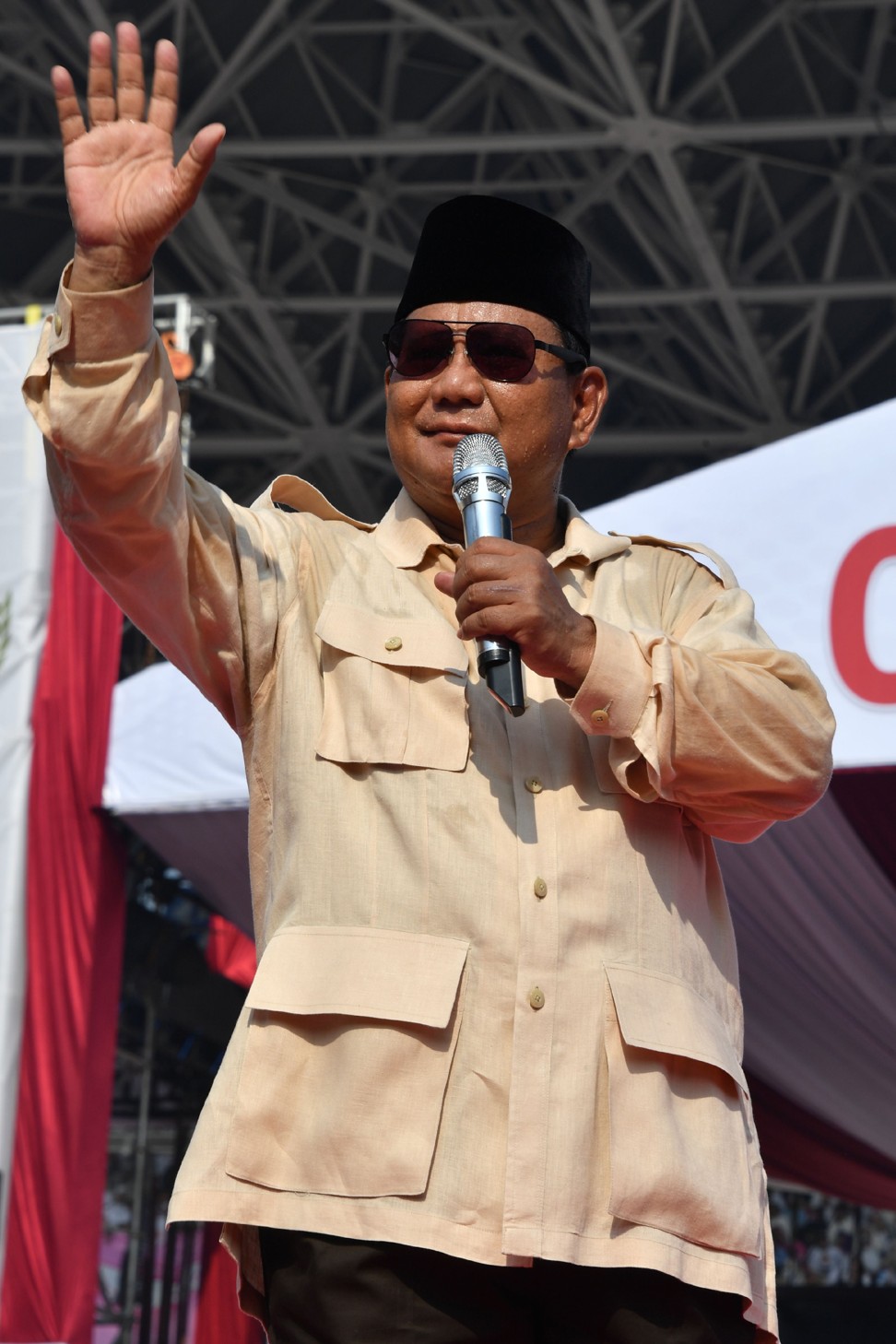
Indonesia election: who will win between Joko Widodo and Prabowo Subianto?
- Jokowi again faces a challenge from former general Prabowo, who has attacked the incumbent’s track record on the economy and promised to end growing inequality
- Religious identity politics and fake news have both shaped the campaign, which culminates next Wednesday
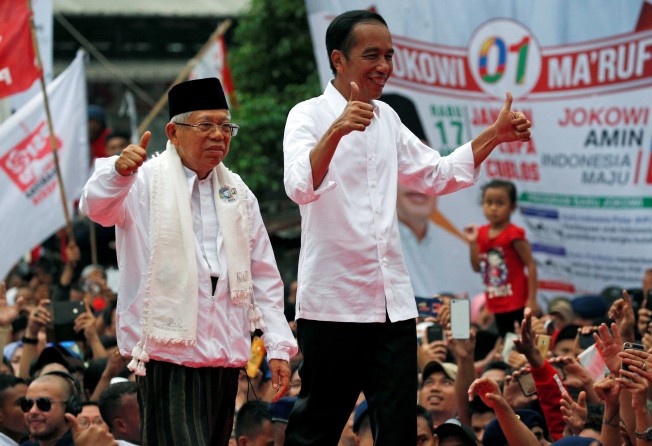
On Wednesday, Indonesians will vote for their next president and vice-president, and for members of local, regional and national parliaments. An estimated 192 million people, or 74 per cent of the population, are eligible to vote, making it one of the world’s biggest and most complex elections.
In the presidential race, President Joko Widodo will be seeking a second term – his challenger is Prabowo Subianto. The two men also faced off in the 2014 election, when Jokowi – as Widodo is known – won the popular vote by a margin of about 6 per cent, getting 71 million more votes than Prabowo.
Meet the candidates
From 2005-12, Jokowi, a former furniture entrepreneur, served as mayor of Solo, a town in central Java. He then became the governor of Jakarta from 2012 to 2014, a post that propelled him to prominence. He launched a range of infrastructure projects and revived the mass rail transit construction project after securing funding from Japan.
Jokowi has cultivated an image as an everyman and a pragmatic, liberal reformist unburdened by ties to the political and military establishment of the Suharto era. This served him well in 2014 but he has since been forced to adjust to some of the brutal realities of Indonesian politics.
He appointed former Suharto-era military leaders to his cabinet, including Wiranto as coordinating security minister. Wiranto, a former general, was indicted for war crimes in East Timor in 1999.
Jokowi’s pivot to reinforce his position has also included the use of the electronic information and transactions law to stifle dissent, a crackdown on organisations deemed hostile to state ideology, and increased military involvement in civilian administration.
For the 2019 campaign, Jokowi chose conservative Muslim cleric Ma’ruf Amin as his running mate, alarming some observers. Ma’ruf is the chairman of the Indonesian Ulema Council and has issued controversial fatwa against LGBTQ citizens and even one against yoga.
In 1998, Suharto’s 32-year reign as president ended when student activists demanded his resignation and his political allies deserted him. Prabowo, an ex-special forces general and Suharto’s former son-in-law, was dismissed from the military in the aftermath and stands accused of involvement in the kidnapping of student activists that rallied against Suharto, a major human rights violation which remains unresolved. Prabowo selected Sandiaga Uno, an investor turned politician, as his running mate.

Contrasting visions
Indonesia is relatively new to democracy, having embraced it in 1998 after the fall of Suharto. In the years since, the world’s fourth-most populous nation has joined the G20 and has become a non-permanent member of the UN Security Council. Economically, Indonesia has also taken its place among a select group of nations with annual GDP of US$1 trillion or more.
Jokowi has cultivated investment from China and Japan for ambitious infrastructure spending, worth an estimated US$327 billion. Indonesia now owns the majority stake in several of its resource-rich assets, such as Freeport-McMoran, which runs the Grasberg mine in Papua, the world’s largest gold mine and second-largest copper mine.
Indonesia has also become more assertive in the region. In 2017 it renamed part of the South China Sea as the North Natuna Sea to counteract China’s territorial claims, and has seized foreign vessels to curb illegal fishing.
However, Prabowo has criticised the government for infrastructure projects that do not benefit people, its failure to protect farmers from volatile agricultural prices, and the rising cost of living. He has vowed to reduce imports of rice and sugar, and to review infrastructure projects Indonesia signed with foreign countries, including China. Sandiaga has called for stricter conditions for foreign workers, including a requirement they speak Indonesian.
Prabowo has also formed an alliance with Islamic hardliners who brought down former Jakarta governor, ethnic Chinese-Christian Basuki Tjahaja Purnama, or Ahok, in the 2016 Jakarta gubernatorial election. Ahok was defeated and jailed on blasphemy charges.
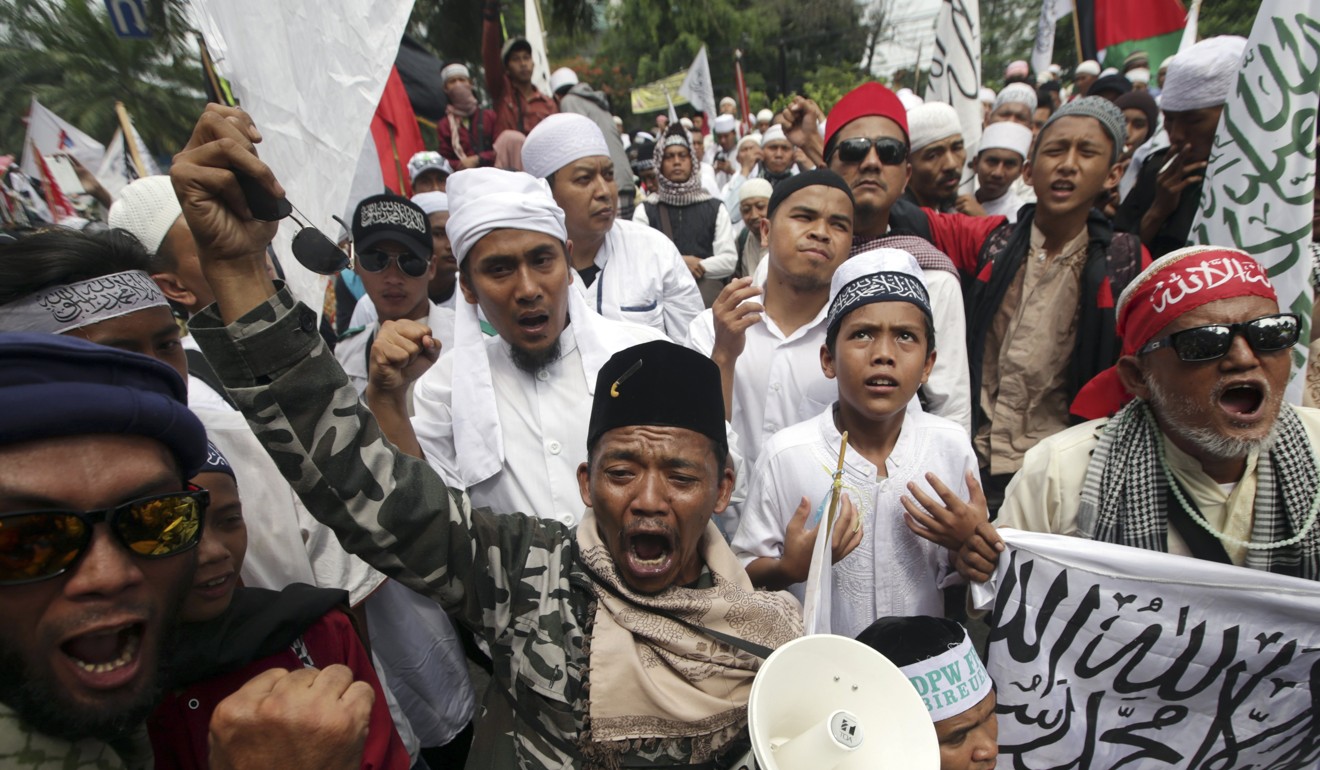
Indonesia is the world’s largest Muslim-majority country and identity politics has increasingly shaped the campaign.
The power of political Islam became evident when mass protests precipitated Ahok’s defeat and imprisonment. In November last year, another Chinese-Christian politician, Grace Natalie, was questioned by the police after declaring her party would not support local laws based on the Bible or the Koran.
When Jokowi’s administration established and subsequently exercised a law banning mass organisations, such as hardline group Hizbut Tahrir Indonesia, he was criticised for not being Muslim enough.
Prabowo seized on the issue to appeal to Islamic hardliners but both he and Sandiaga have rebutted suggestions they are pandering to conservatives, which is harmful for unity. While Jokowi is still seen as the candidate best placed to uplift pluralism in Indonesia, there are concerns he will be less vocal on human and minority rights to appease Ma’ruf’s supporters.
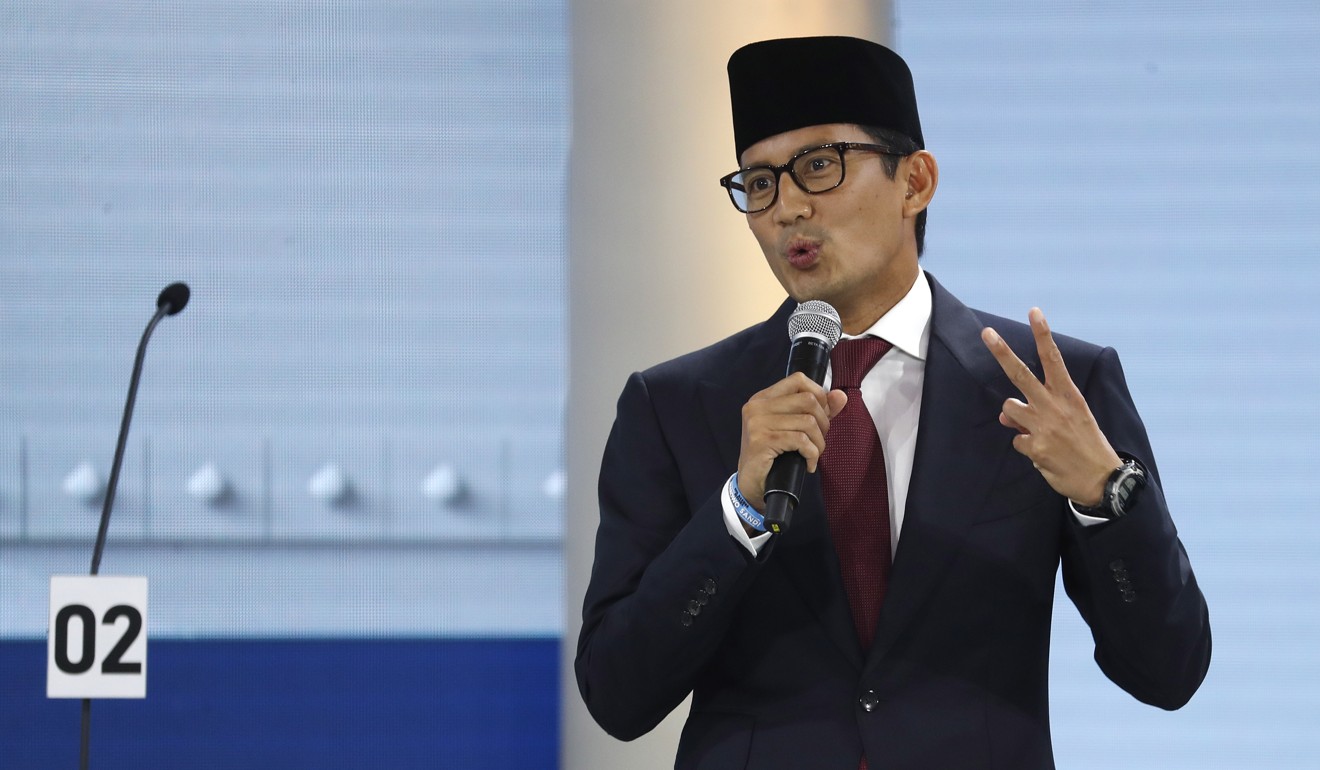
Indonesian social media is a hotbed of fake news and online hoaxes, and encrypted private messaging applications make monitoring even more difficult. Candidates can pay “buzzers” to spread their messages – true or false – and the material has often been picked up and reported by news outlets.
Much of this misinformation surrounds China, including, for example, Facebook posts claiming Chinese workers had been equipped with electronic citizen ID cards enabling them to vote; China would help the election commission fix damaged ballot boxes; and that containers from China, filled with 70 million ballots casting votes for Jokowi and Ma’ruf, had been discovered in Jakarta’s Tanjung Priok port.
China has been cast as a convenient bogeyman as the military remains suspicious of the threat of communism, and Jokowi has cultivated ties with Beijing through funding for infrastructure projects.
Anti-China sentiment has also risen due to the perceived wealth gap between ethnic Chinese and native Indonesians. According to a recent Pew Research Centre survey, 53 per cent of Indonesian respondents had a favourable view of China, down from 66 per cent in 2014. More than 40 per cent of Indonesians also viewed Chinese influence as a major threat to their country, up from 27 per cent in 2013.
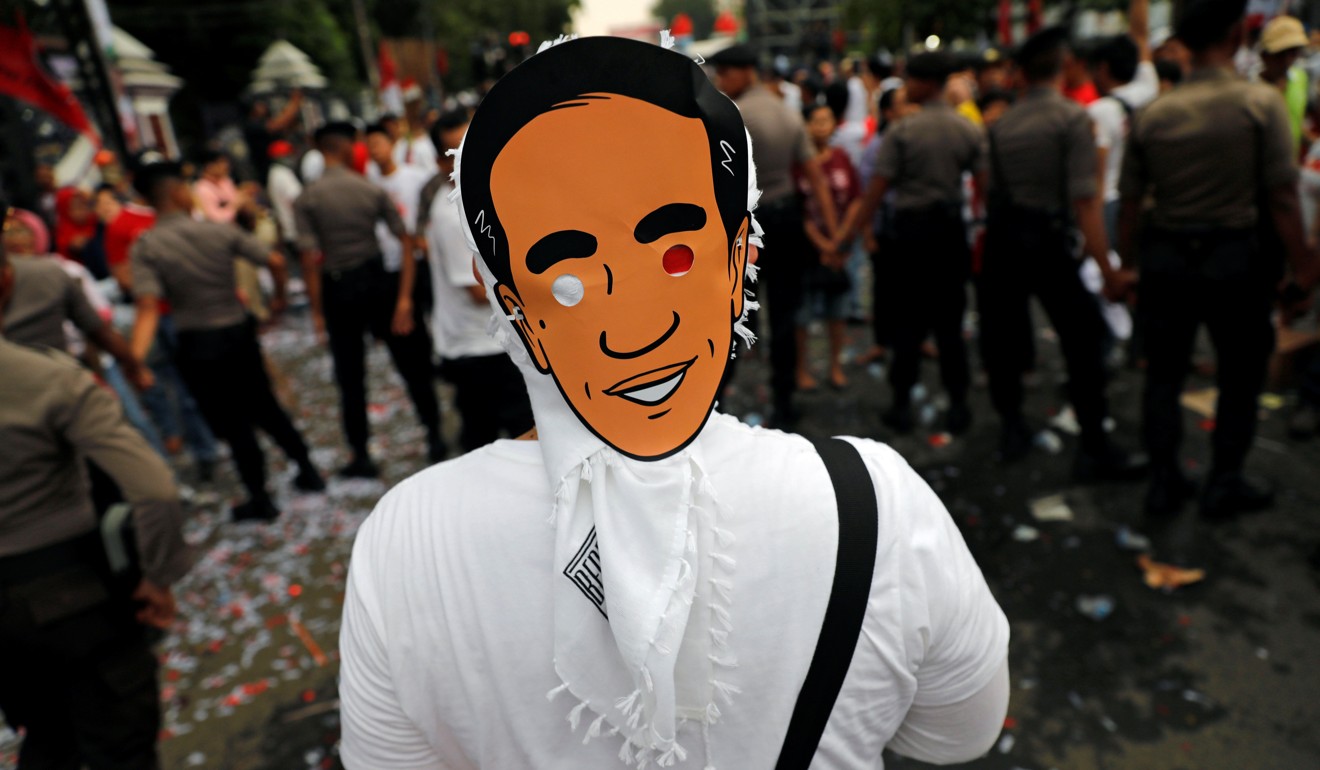
How the election works
Indonesia’s 193 million voters will choose from more than 245,000 candidates, from 16 political parties, vying for more than 20,000 seats in national and municipal parliaments, as well as regional councils. The voting will take place at about 805,000 polling stations across 34 provinces. About 6 million election workers will be deployed to polling stations.
The day of the election is a national holiday – Indonesia calls it a “democracy party”. Turnout is expected to reach 70 per cent. Indonesia has budgeted 24.8 trillion rupiah (US$1.8 billion) to conduct the election, although the opposition recently questioned the electoral roll, claiming they have identified millions of “ghost” voters.
Candidates will be declared victorious if they receive 50 per cent of the votes. While most polls suggest Jokowi remains on track to secure a second term as president, his lead has narrowed and, according to analysts canvassed by Bloomberg earlier this week, the odds of a Prabowo victory have risen. Prabowo’s campaign team claims their internal polls show he is on course to win over 60 per cent of votes.